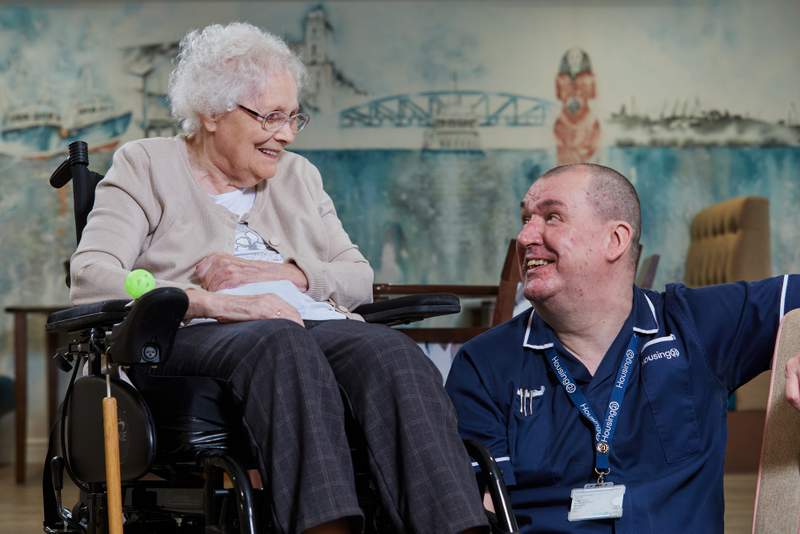How can Extra Care accommodation work for your older family members?

Needing a little more support when getting older doesn’t have to mean heading directly to a care home, or even needing a carer to visit several times a day. There are various options for moving to a more manageable home within a community, where people can befriend and support each other. In some cases there are also professional carers at hand for day-to-day and emergency support.
The options for living independently include retirement villages and apartments, sheltered housing, home shares, and what is called Extra Care.
Why choose Extra Care?
Extra Care is best suited for people over the age of 55 with a current or future care need. They can offer properties for people who would like to live independently, while having the privacy of their own home and social opportunities on their door step with a range of communal facilities such as a lounge, hair salon and café.
One of the main benefits of living in Extra Care is the presence of fully trained care workers on site around the clock to respond in an emergency. Perhaps someone has just returned from hospital and is in need of a little more care whilst they settle back into home life, or in need a little more support whilst recovering from an illness at home.
Th care team may well also provide residents with personalised, planned care.
How do care workers view their role in Extra Housing?
To celebrate the role of men in care, the not-for-profit provider, Housing 21, has been talking to a number of its carers about their jobs. The proportion of male care workers is low, but those who are working in the Extra Care sector have regularly found fulfilling roles.
Gareth Farmer has worked in care for 30 years, and at Housing 21 for 12 years. He says: “You never know the impact the little things can have, sitting with someone for 15 minutes and discussing their favourite films or listening to a story they have from years ago – those moments could be the difference between a good day and a bad day for someone else.”
It was whilst restoring bungalows for older people in 1986 that Wayne Creswell originally a labourer, first considered a career in care. Over 30 years later, Wayne has worked for the council, then the Alzheimer’s Society, and for the past three and a half years at Housing 21. Wayne says: “For me, I do it because I want to work with people, you’ve got be a caring person and the job does come with its challenges, but the rewards are worth it. I love chatting to the residents, I’m a history lover so we can have chats about days gone by – which I think I love as much as they do.”
Ian Taylor moved from retailing into being a care worker in search of a more fulfilling career. He comments: “Though there are so many ‘roles’ within my day-to-day job, the most important by far is becoming a companion and a friend to the residents at our scheme who sometimes wouldn’t smile or talk to anyone else all day if it wasn’t for us. Building that relationship, finding out what makes them tick, getting to know their personalities and bringing a little joy to their day – all these things make the care worker role so fulfilling. Of course, there are barriers to overcome when you start working in the care sector. Getting used to helping with personal care, dealing with poorly residents and even taking the brunt of someone’s bad mood are all day-to-day occurrences but overall, the job you are doing is often life-changing to the residents you care for. You often become an extension of family and making residents laugh lifts my mood like nothing else!”
How do you find and fund Extra Care?
Extra Care providers can be found on the Elderly Accommodation Counsel website.
There are often costs payable for the Extra Care services. At Housing 21 for example, all residents pay a service charge, a support charge and a core support charge. Costs are also payable for care and domestic support and will vary for each individual. In some cases the resident may be eligible for support to pay rent and/or care charges.

